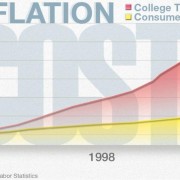Like any neoliberal marketplace, the only value that matters is accumulating currency (in social media, likes, shares, comments, and follows) with as little cost as possible.
So, you’re online and see a friend post a tweet you think is completely hate-free and innocuous. Of course, you then join your other friends on another thread, discussing a topic of interest. You continue until suddenly you see your notifications building up faster than normal. Upon reading them, you find that your friend’s fairly innocuous tweet is getting attention and is largely negative. As you now scroll down to see the insults and personal attacks fly in, you wonder, what should I do?
Is it the proper thing at this point to stay out of it? After all, they did this to themselves, right? You never told them to post anything. Perhaps the negative attention they’re receiving is deserved. And perhaps they should have thought about what they wrote before they posted it.
But the person is a friend. Well, not exactly. You’ve never actually met them other than through your exchanges on social media. Do you owe it to your “friend” to stand up for them? Should you step in on their behalf and address some of these attackers? Or do you draw your line of allegiance at conflict? Perhaps it’s better to continue lurking in the nearby cybershadows, watching the mess get worse and worse.
But lurking has a problem because the attack posts are filled with strawman arguments; they are twisting your friend’s tweet to mean something it does not. In addition, it’s obvious from your friend’s responses to the attacks that they are not at all comfortable with the insults and abuse being thrown at them. What’s the right thing to do? Direct message your friend and tell them to stop engaging in all the attacks. Or block the accounts throwing all these insults and abuse? Is the problem your friend, who keeps trying to defend their position against the attackers? Do they really need to drop their ego and let it all go?
Maybe it would be best to delete the whole post and forget all about it.
And there’s the rub. Does your friend not have the right to free speech? So long as it doesn’t violate the rules of that particular social media platform, then why delete it? We’ve all seen posts that have offended us, but that doesn’t mean we should expect those posts to be deleted simply because our own sensibilities have been hurt. But the same questions apply to the attackers’ tweets: do they not have a right to express their opinions freely? Even if their “critiques” aren’t well-formed or intelligent, don’t they have a right to say what they want, as long as it isn’t hate speech (which is, of course, rather difficult to define)?
As the attacks pour in, you begin to think about your social media reputation. Will sticking up for your friend harm your reputation? Will you be seen on social media as a conspirator in the whole fiasco? Will you suffer an even worse cyberfate for sticking up for your friend? Maybe it’s easier to pretend you never saw any of it, log off, and mow the lawn.
Moral dilemmas involving questions of our responsibilities to others, as they conflict with personal desires, are always difficult. They are further complicated on social media because it is a world far removed physically from our daily experience, and that means our “friendships” are different on social media.
Many of those with whom we regularly interact are friends in the same virtual sense as our interactions—they lack direct contact, substance, or any sense of long-term commitment. Thus, we are forced to ask if accountability to our friends on social media differs from accountability to our friends down the street. Do our social media friendships have a different status from physical friendships? We might even ask if our online friends are real friends at all.
Nonetheless, the consequences aren’t much different from the physical world’s. The choices we make about how we think about and act upon our responsibilities toward others will shape how we are perceived—it will influence our reputation. And on social media, there is no guarantee that coming to the aid of a friend will be appreciated by those looking on from the audience.
Why?
Because reputation in social media land is often measured not based on one’s moral integrity but on the neoliberal numbers game of tracking followers and the number of comments to one’s posts.
Good posts are the ones that get the most comments and retweets. “Influencers” are those who have the most followers. The question rarely asked is: At what point does the morality of how we treat and support others outweigh the social media-fed desire to have a big following and to be viewed as important? Put another way; we can ask where personal integrity fits into the picture of how we interact with others in the social media environment.
When we interact with others in the physical world, our right to exercise free speech is accompanied by responsibilities related to how we engage with debate and discourse. And how we carry out those responsibilities is fundamental to being seen as someone with integrity. This equation seems to be largely lost in the world of social media. Perhaps it’s a result of how easy it is on social media to post something nasty or to walk away from a virtual friend who is experiencing the trolling vitriol of the Internet.
Suppose our own perceived reputation is at risk. No problem. Just quit the app, and the world is back to normal—nothing is lost. That’s something we can’t do with our flesh-and-blood interactions. This is one of the major flaws of social media. Many people view it as a context in which they can spew whatever they want without any sense of obligation to their fellow humans or responsibility for what they spew.
In short, many people seem to view social media as a context in which ethics is disengaged or irrelevant. Situations where we would normally think about supporting a friend who is being politically attacked, misrepresented, or bullied somehow don’t seem to carry much virtual weight, particularly when coming to someone’s aid might risk losing followers. Indeed, for many on social media, Twitter and other outlets have nothing to do with ethics or integrity.
They are, instead, viewed as amoral marketplaces in which the currency of exchange is followers. And just like any good neoliberal marketplace, the only value that matters is accumulating that currency with as little cost as possible. There is no need to put one’s values on the line when it’s so much easier just to quit the app and pretend your “friend” isn’t really there.




This is an interesting and thought-provoking blog post. I’m glad you wrote it.